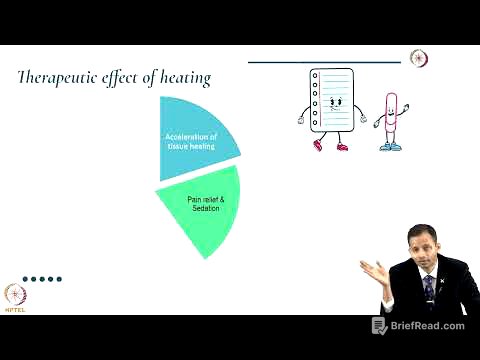TLDR;
John Medina discusses key insights from his book "Brain Rules for Baby," emphasizing the unexpected nature of parenting and brain development. He stresses that while brain science offers valuable perspectives, it's crucial to approach parenting with a degree of skepticism due to the limitations of current knowledge, individual brain differences, and the associative nature of much of the available data.
- Babies are active learners from birth, keenly observing and imitating adult behaviors.
- Marital conflict can negatively impact a child's nervous system and academic performance, but resolving conflicts in front of children can mitigate these effects.
- Praising effort rather than innate intelligence fosters tenacity and resilience in children, preparing them for intellectually challenging environments.
Introduction: The Grump Factor [0:04]
John Medina introduces himself as a developmental molecular biologist and discusses the origins of his book, "Brain Rules for Baby." He explains that the book addresses common questions from expectant parents, such as how to raise a smart, happy, and moral child. Medina expresses skepticism about directly applying brain science to parenting, citing ignorance about brain function, individual brain differences, and the associative nature of parenting data. He also notes the changing dynamics of the American family, including blended families and single-parent households, which are not always reflected in existing research.
Babies Are Active Learners [10:05]
Medina emphasizes that babies are active learners, highly sensitive to adult behaviors. He shares anecdotes illustrating how children imitate their parents, even at a very young age. He cites the work of Andy Meltzoff, who demonstrated that babies can imitate tongue movements just 42 minutes after birth, suggesting innate pre-loaded software. Medina encourages parents to recognize that children are constantly observing and mapping their environment, absorbing both positive and negative behaviors.
What to Do Before Your Child Comes Into the World: The Relational Ecology of the Home [17:18]
Medina discusses the impact of marital conflict on children, noting that conflict typically increases after the birth of a child. He presents data showing that marital satisfaction often plummets, while hostility rises. Children can sense this conflict and rewire their nervous systems in response, potentially affecting their academic performance later in life. However, he emphasizes that the key factor is not the amount of conflict, but whether children witness conflict resolution. He explains the role of the autonomic nervous system, including the sympathetic (stress response) and parasympathetic (regulation) systems, and introduces the concept of vagal tone, which reflects emotional regulation. Unresolved marital conflict can lead to lower vagal tone and various negative outcomes for children, including depression, anxiety, and poor executive function.
The Four Grapes of Wrath [26:05]
Medina addresses common sources of marital conflict during the transition to parenthood, which he terms "the four grapes of wrath": sleep loss, social isolation, affective disorders, and chore inequities. He focuses on chore inequities, presenting statistics that reveal a significant disparity in household labor between men and women, even when both partners work. He suggests that couples make two lists before the baby arrives: one detailing everything the wife does and another detailing everything the husband does. If the lists are unequal, they should equalize them to reduce conflict and promote a healthier environment for the child.
What to Do When Your Child Comes Into a School: Effort Versus IQ [30:45]
Medina shifts the focus to preparing children for school, emphasizing the importance of effort over innate intelligence (IQ). He shares a personal anecdote about his mother, a 4th-grade teacher, who would give him brain teasers but never provide the answers, encouraging him to exert effort. He introduces the work of Carol Dweck, who has shown that praising effort rather than intelligence fosters tenacity and resilience in children. Medina contrasts fixed mindset behaviors (FMS), where children are praised for being smart, with growth mindset behaviors (GMS), where children are praised for their hard work. Children raised with a fixed mindset may panic when faced with challenging problems and view errors as personal failings, while those raised with a growth mindset are more likely to embrace challenges and see errors as opportunities for learning.
Growth Mindset Behaviors [38:52]
Medina elaborates on growth mindset behaviors, explaining that parents in these households teach their children how to focus and value effort over grades. He notes that these children are more likely to be curious, tenacious, and eager to solve problems. He contrasts this with fixed mindset households, where children may prioritize pleasing authority figures over genuine learning. Medina concludes by emphasizing that parenting is about developing human hearts and celebrating relationships, not just achieving academic success.
Questions and Comments [45:12]
Medina answers questions from the audience, including one about the impact of constant positive reinforcement. He references Diana Baumrind's research on authoritative parenting, which balances warmth and praise with clear rules and expectations. He advises parents to provide both positive reinforcement and boundaries for their children. In response to a question about a child seeking praise for good behavior, Medina suggests that parents continue to offer praise, especially in the first year of life, to foster a sense of safety and approval. He also addresses the importance of raising the bar for children who claim they didn't have to work hard to achieve success, ensuring they are continually challenged.









